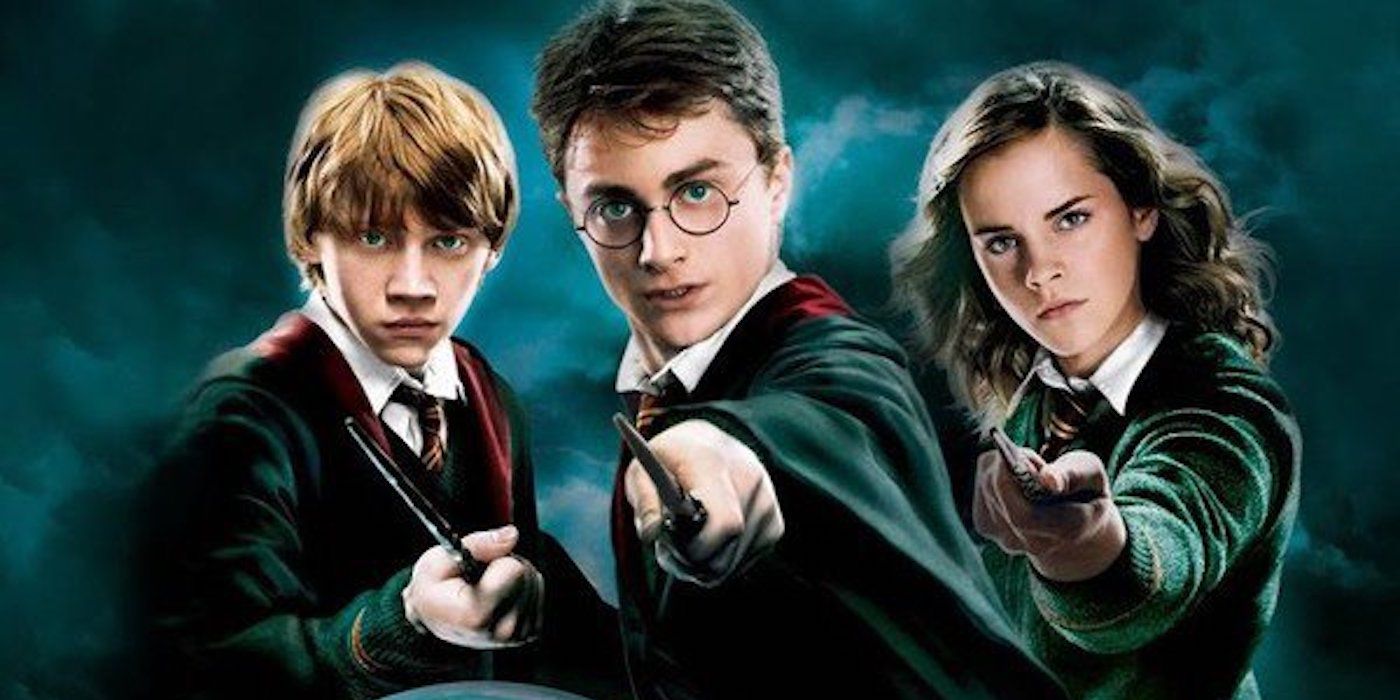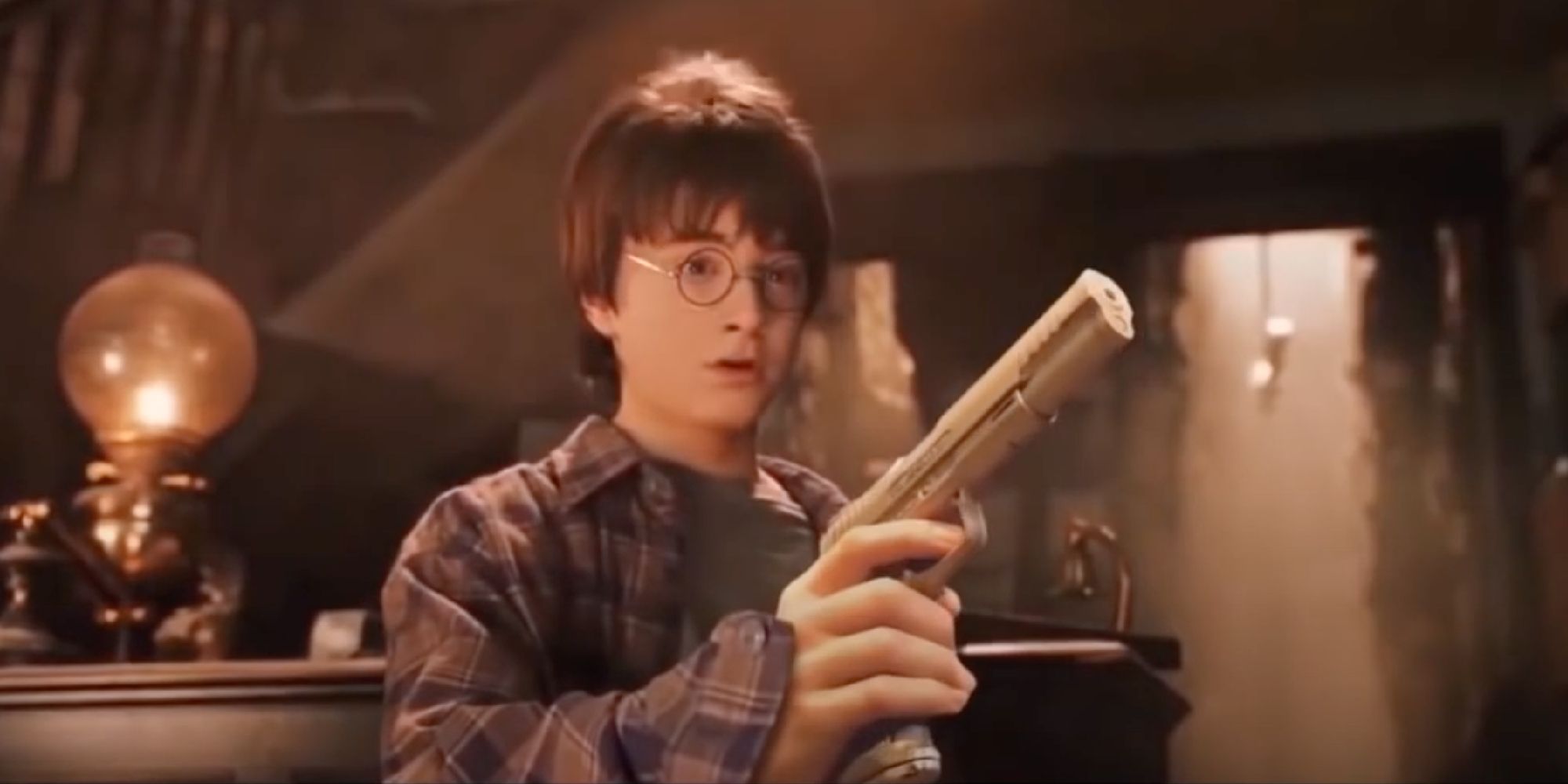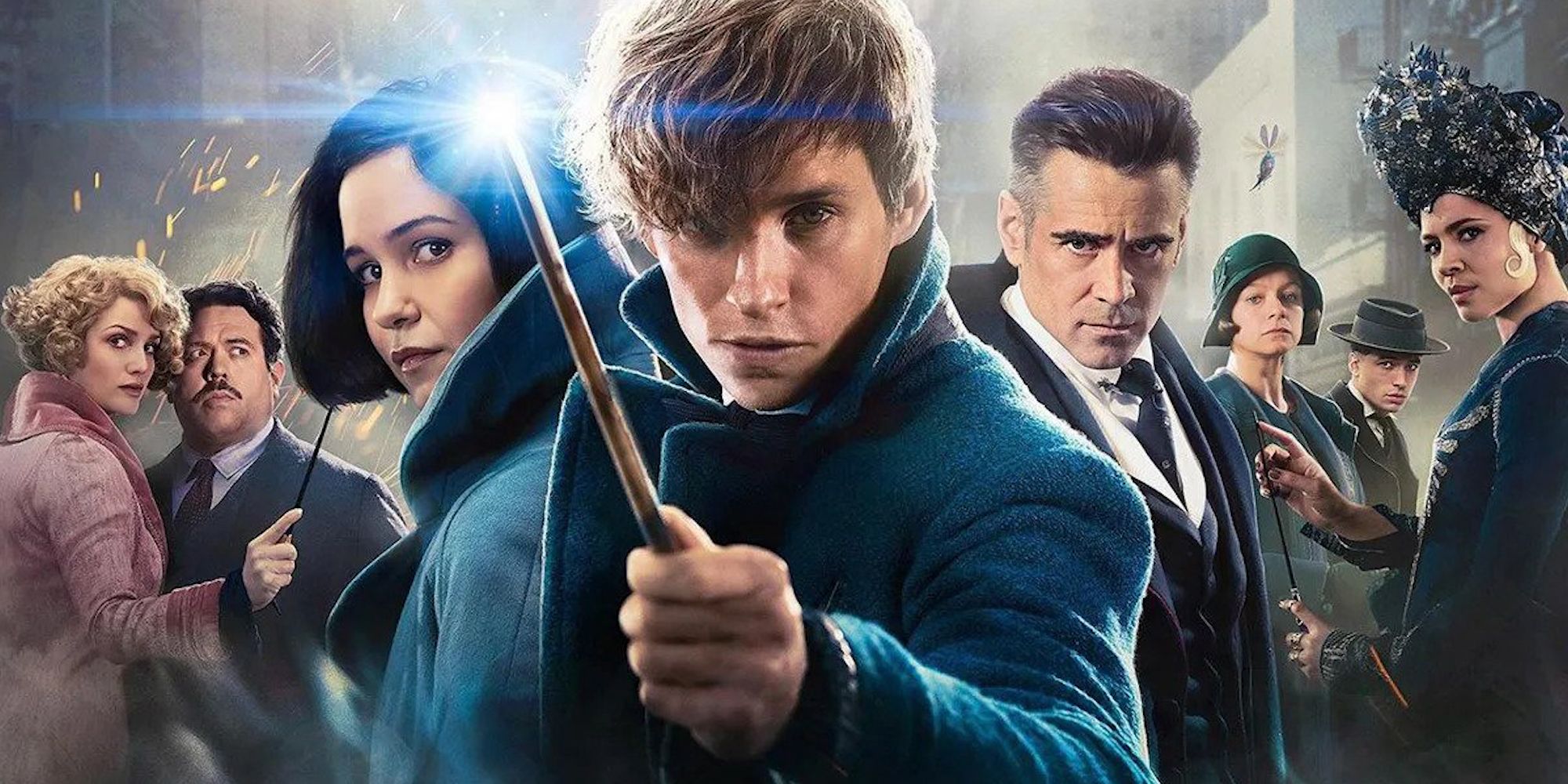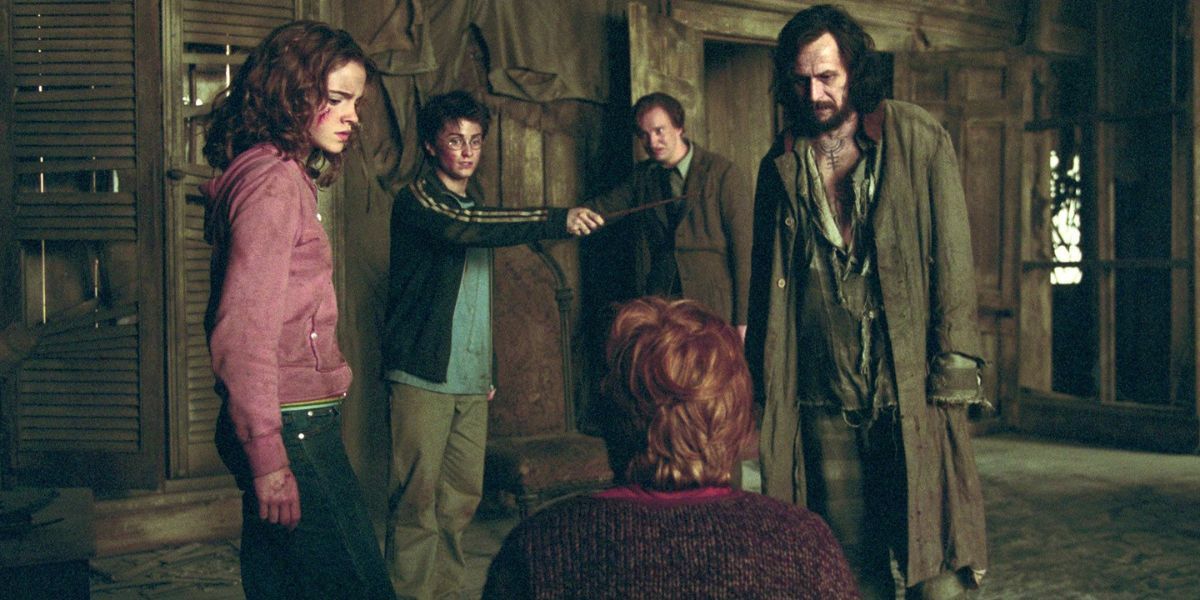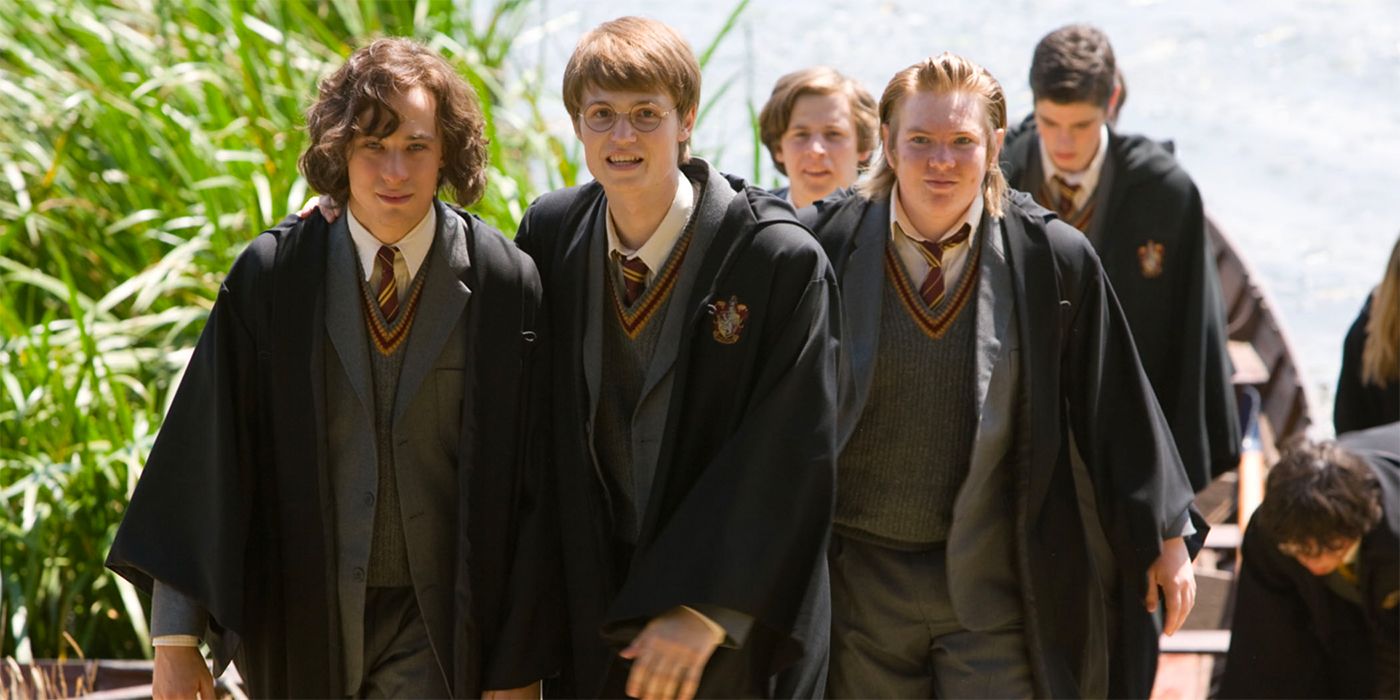The Harry Potter film series was a global phenomenon the likes of which we are likely to never see replicated. The films were able to capitalize on the perfect intersection of a worldwide bestseller, a generation of voracious readers and film watchers, and a picture-perfect cast that grew perfectly into their roles. The story of the boy who lived was palatable enough for an international audience, while still engaging enough that people everywhere wished they could be a witch or wizards themselves, making it almost universally appealing. The franchise became a cornerstone in the cultural zeitgeist, one of the most popular and recognizable works of fiction ever. After the conclusion of Harry's story, Warner Bros. had lofty ambitions of creating an expanded film universe set in the Wizarding World that first began with Fantastic Beasts and Where to Find Them. However, following a combination of lackluster box office results, failed attempts at a legacy sequel, and a myriad of controversies around incredibly visible actors and writers, the series appears to be sputtering to an unceremonious conclusion. The recent failings of a beloved franchise make for tempting ground to set up a reboot, a "fresh start" for a series that already has a foothold in the cultural consciousness. But the truth is, there's no need for a reboot of the Harry Potter movies, at least not anywhere in the near future. For any producers out there, let this be the plea: don't reboot the Harry Potter movies, please.
The Harry Potter Movies Got Everything Right
The original Harry Potter movies came out in the absolutely perfect whirlwind of factors that helped them become such a staple in everyone's lives. Harry Potter and the Philosopher's Stone was released in 2001, the first year that there had not been a new addition to the book series since it first started coming out in 1997. With four of the books already released and internationally popular, the series had an already massive fanbase even as the first feature was coming out. The public favor for fantasy was also peaking, with the Lord of the Rings movies coming out in the same few years. The turn of the century saw Harry Potter-mania: there were lines wrapped around bookstores for the midnight releases of the newest books and each subsequent movie seemed to make the franchise loom bigger and bigger over the cultural landscape. As they came out, three out of the eight movies became the top-grossing films of their year and, at the end of it all, became the fourth-highest-grossing film series of all time. It was a golden situation for them to maximize their success.
With the perfect set of circumstances around the films' success, the cast helped propel the franchise to unimaginable heights. It's hard to imagine a world without Daniel Radcliffe as Harry Potter. And that world wouldn't be as charming without Rupert Grint's endearing portrayal of Ron Weasley and Emma Watson's grace and poise. The Golden Trio was cast at such a young age and was thrust into mega-stardom so quickly. It seems like a foregone conclusion that this trio of actors was the right people for the job, but there was a time when they had to prove themselves to everyone. And with each passing year, movie, premiere, press junket, and interview they were able to be the faces of a multi-blockbuster franchise and role models to children everywhere. Not to be outdone by the young cast, impeccable thespians like Alan Rickman, Maggie Smith, and Gary Oldman were the elder statesmen and pinnacle of acting skill in their iconic roles. The combination of a star-studded cast that only grew more into their roles and a feverish loyalty to the books and characters made the franchise one of the most ambitious, rewarding, and profitable productions in the history of film.
Why Not Capitalize?
If the series was so utterly dominant, why then should production studios steer clear from rebooting it? There is actually an overabundance of reasons to argue against a reboot of the series, so we can go through a number of the most important ones:
To begin with, there's no real demand for a new Harry Potter. Radcliffe is still, for all intents and purposes, the Harry that multiple generations have grown to love and associate with the character. The faces of Watson, Grint, Rickman and the rest of the stars still hold immense capital in audience memories. To begin again and restart so soon while some of the main actors are still young and relevant will likely be divisive for fans who are torn between their old loyalties and the new kids. Unlike other popular British works of fiction, there were never meant to be multiple faces to Harry Potter.
Furthermore, the taste of disappointment in the recent failings of the Fantastic Beasts series might leave potential viewers skeptical or disinterested in any overambitious returns. The series had been slated for five films, but each subsequent release saw smaller commercial and critical success making the future appear bleaker and bleaker. The series had its fair share of casting controversies and lacked narrative cohesion— perhaps two of the most important factors in the success of the original set of movies.
How Do Harry Potter Fans Reckon With the JK Rowling of It All?
It's also time to address the elephant in the room or, in this case, the troll in the dungeon. In recent years, J.K. Rowling, the writer of the Harry Potter book series and the screenplays of the Fantastic Beasts films, has publicly shared reductive and harmful opinions on gender identity and trans rights. In addition to criticisms surrounding her close-minded comments, audiences have become more vocal about identifying the many cultural and racial insensitivities present in the book series that were previously ignored, overlooked, or misunderstood. Amidst a resurgence of hate crimes and antisemitism, the presence of racially disrespectful naming choices and the perpetuation of certain stereotypes cannot be ignored and should be properly addressed. Collider's Douglas Laman explores the dilemma of having a childhood's worth of beloved memories with the franchise while vehemently disagreeing with Rowling's bigotry. She affirms that "anyone’s special attachment to Harry Potter isn’t in jeopardy of vanishing, nor are you evil for clinging tightly to memories or merchandise associated with the franchise." People grew up with the series and that nostalgia and connection are difficult to completely eradicate. But Rowling's comments are a genuine threat to countless marginalized communities, and supporting those that have been hurt should be of the utmost importance.
What's Next for Harry Potter?
Perhaps one day, a version of Harry Potter could be brought to life in a more accepting world, but with how much cultural capital the original series still holds, there's no need to rush into it. Those looking for more of the Wizarding World can expand their horizons, with countless other storylines in the universe warranting more attention, or maybe even a TV show adaptation could be the path forward for the franchise. However, if you don't wish to engage with the Harry Potter world anymore, Laman recommends some fantasy works that emphasize the perspectives of those in marginalized communities. For a series as integrated into popular culture as Harry Potter, its relevance is unlikely to fade away, making it a tempting target for a potential reboot. But whether it be because of the controversy or the recency of the original franchise's success, there are so many reasons to say please, don't reboot the Harry Potter movies.

